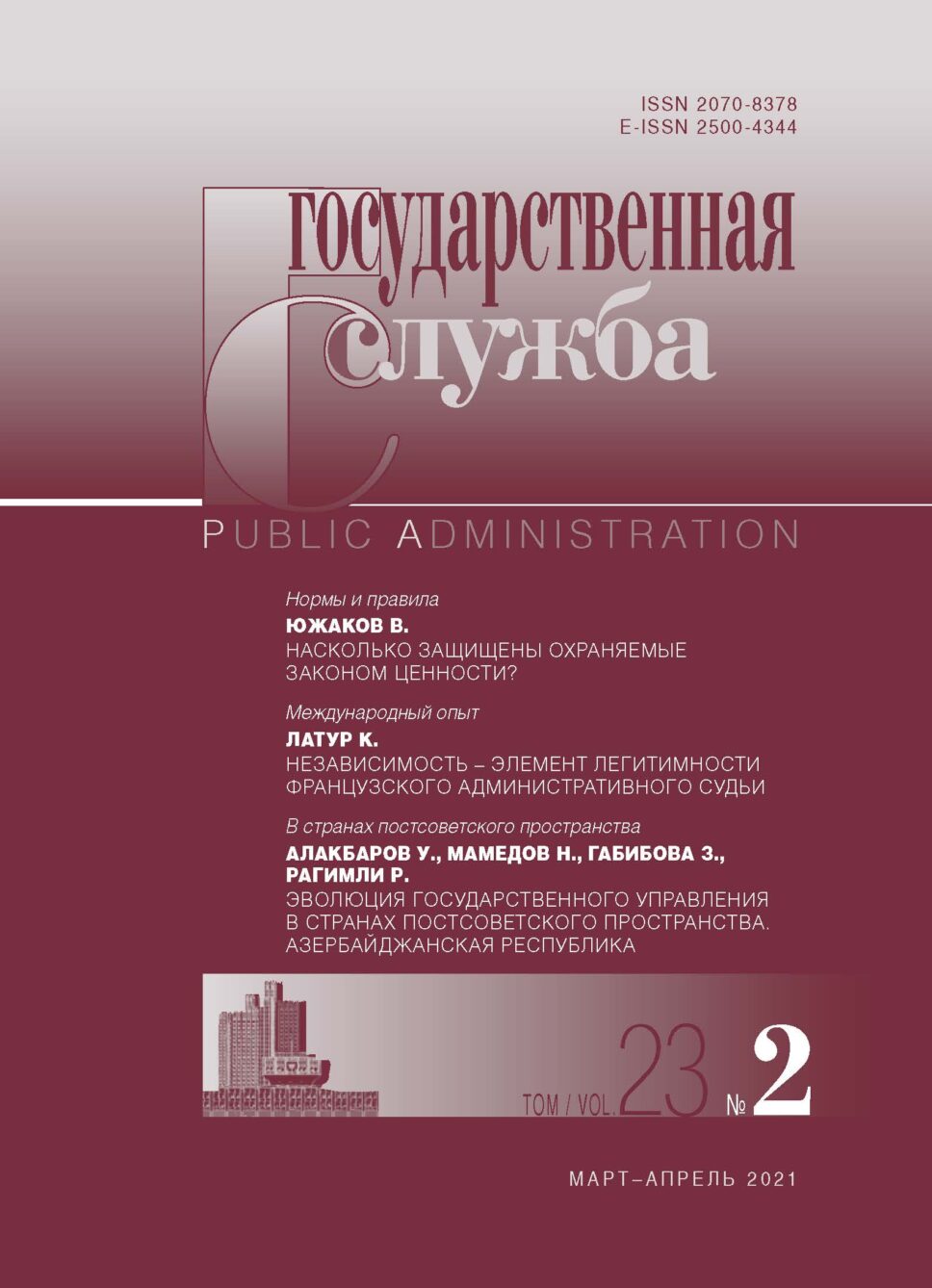Recommended link to article:
VIKTOR GRIGORIEVICH GORBа
аUral Institute of Management -– Branch of the Russian Presidential Academy of National Economy and Public Administration
DOI: 10.22394/2070-8378-2021-23-2-55-62
Abstract:
The article presents a system-activity approach to implementing the new federal state educational standard of higher education in the training direction 03.38.04 “State and Municipal Administration”. The article substantiates the methodology for designing a model of activities for public servants as the basis for determining professional goals of the educational process at a university. The author defines and differentiates the types of their activities according to the functional characteristics of various categories of civil servants. Professional goals are achieved through the development of professional competence of students, which implies the setting of the following educational goals: developing the student’s leadership potential; developing the citizenship as the ability to realize the rights and responsibilities of a citizen of the country; forming and developing meta subject skills, which are the signs of a civil servant’s professional qualities; mastering management technologies in a certain area of activity. The work presents the experience of approbation of the system-activity approach in the process of teaching. A special role is assigned by the author of information and communication activities of civil servants in the process of exercising their powers.
Keywords:
federal state educational standard of higher education, model of professional activity of a civil servant, educational process, professional training of civil servants, development of meta subject skills, system-activity approach
Received:
April 15, 2021
References:
Вaimuratova L.R., Dolgova O.A., Imaeva G.R. et al. Digital literacy for the economy of the future. Moscow: NAFI, 2018. In Russian
Bednyy B.I., Kuzenkov O.A. Integrated educational programs “Academic graduate – Ph.D. studies”. Vyssheye obrazovaniye v Rossi. 2016. No. 5 (201). P. 21–32. In Russian
Gorb V.G. Competence approach in higher education: problems and solutions. Voprosy upravleniya. 2018. No. 6 (55). https://journal-management.com/issue/2018/06/29 In Russian
Gorb V.G. Methodological bases of technology of competition, certification and qualification exam of civil servants. Ekaterinburg, 2010. 88 p. In Russian
Gorb V.G. Raising the level of citizenship as the goal of the educational process at the university. Pedagogicheskoye obrazovaniye v Rossii. 2019. No. 7. P. 13–21. In Russian
Gorb V.G. System-active approach to resolving methodological difficulties of training state and municipal employees. Gosudarstvennaya sluzhba. 2013. No. 5. P. 57–61. In Russian
Gorb V.G. Theoretical difficulties of the educational standard of training state and municipal managers. Gosudarstvennaya sluzhba. 2017. No. 2. P. 58–63. In Russian
Litvinenko N.K. The system of professional training of civil servants (on the experience of France). Pedagogika i psikhologiya: teoriya i praktika. 2018. No. 3 (11). P. 92–98. In Russian
Oseichuk V.I. Standard and evaluation of professional qualities of high-level officials. Gosudarstvennaya sluzhba. 2011. No. 2. P. 18–21. In Russian
Ponomarenko B., Nikulchenko M. Competence approach to professional education of civil servants. Gosudarstvennaya sluzhba. 2015. No. 3. P. 81–84. In Russian
Sladkova N.M., Stepanenko A.A., Ilchenko O.A., Shaposhnikov V.A. Qualification requirements for civil servants in the digital competence model. Gosudarstvennaya sluzhba. 2020. No. 6. P. 46–56. In Russian
Articles in Open Access mode are published under the Creative Commons Attribution 4.0 International (CC BY) license.

